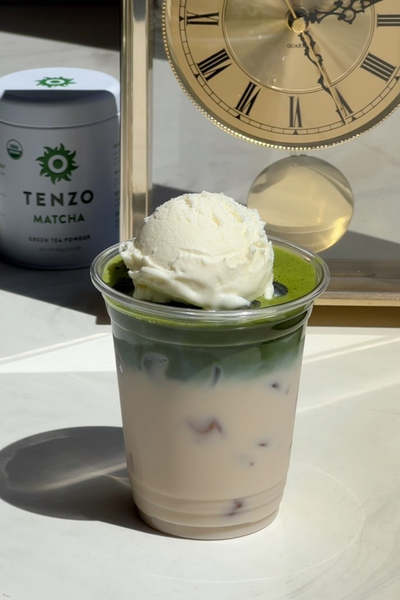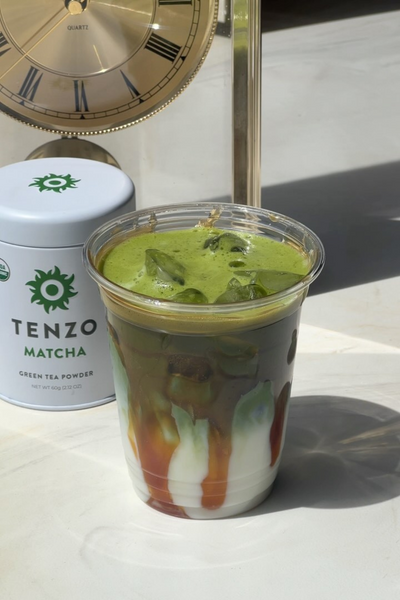What Happens to Your Body When You Quit Coffee
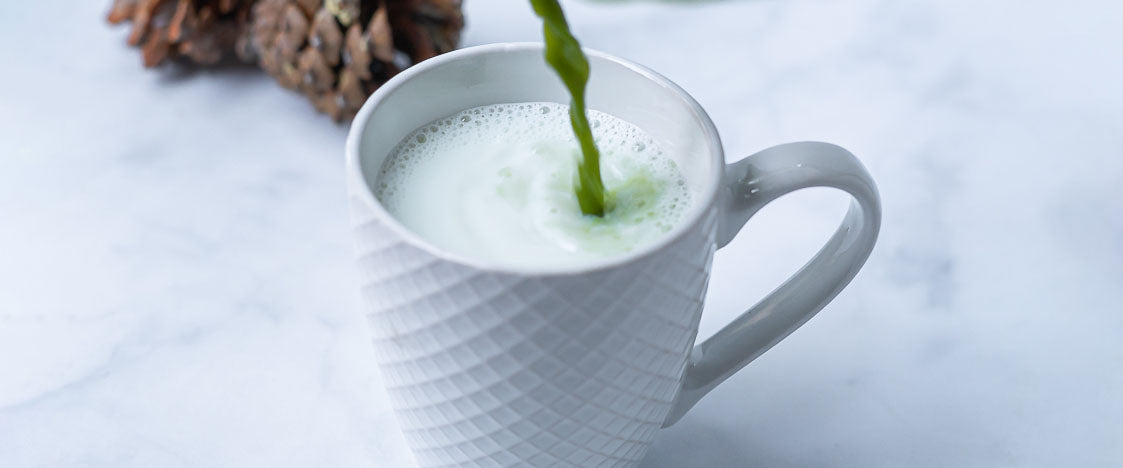

What Happens to Your Body When You Quit Coffee
Posted on January 06, 2021 | by Steve O'Dell
If you’re like the majority of Americans, you start every morning with coffee. But, have you ever considered the side effects of your morning ritual? Quitting coffee is intimidating… especially when you’ve come to rely on that jolt of caffeine to get your day started. So why quit coffee in the first place? Because there’s a better and smarter way to fuel your body that won’t have you losing sleep and feeling restless. In fact, before we get into what to expect when you quit coffee, we’ll go over why you should quit coffee.
Wake Up & Smell The Coffee
Why You Should Give Up Coffee
Jokes aside, daily coffee consumption can have extremely serious side effects on the body. From loss of sleep to severe anxiety, the damage coffee does is apparent, if you know the signs. So why should you give up coffee? Here are five reasons to make ditching coffee your next goal. Keep in mind, that we’re only highlighting five reasons. There are numerous reasons to quit drinking coffee, and a quick Google will provide you with plenty of other incentives to ditch that dirty ole bean water.
-
Anxiety- People drink coffee to feel awake and alert, but more often than not, daily caffeine consumption takes this over the edge. Even modest doses of coffee have been tied to rapid breathing and increased stress levels. But drink more than a "modest" dose and you'll feel unsure, anxious, and jittery.
-
Digestive Problems- If you know, you know. Coffee has an almost laxative effect, which is caused by the release of gastrin, a hormone the stomach produces that speeds up activity in the colon. And, an increase in this hormone has been linked to the development of gastroesophageal reflux disease (GERD).
-
Insomnia- Caffeine powers you up during the day, but that often carries over to the nighttime as well. Because coffee is often followed by a caffeine crash, many people reach for an afternoon cup to supplement their morning serving. This will result in issues falling asleep and can cause long termg insomnia. So, if you're having trouble sleeping, your daily coffee is likely the culprit.
-
Addiction- Caffeine triggers the same receptors in the brain that thins like cocaine and other amphetamines do, and as such causes user dependency. Regular coffee consumption leads to physical and mental dependency, otherwise known as addiction. And, for anyone who has been drinking coffee for a while, switching will likely cause minor withdrawal symptoms like headaches and irritability.
-
High Blood Pressure - Elevated blood pressure is linked directly to heart attacks and strokes because, over an extended period of time, it damages blood vessels which restricts the flow of blood to your heart and brain. Coffee has been proven to raise blood pressure levels, which means that continued consumption of coffee can cause long term blood pressure problems.
Definitely Gonna Give You Up
Rick Astley Wasn’t Singing About Coffee
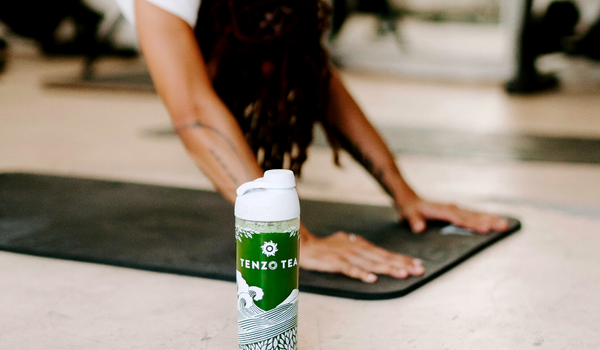
Although coffee may be one of the most popular beverages in the entire world, as you can see there are tons of reasons to give it up. So, what should you expect to happen when you quit coffee? Well, above we mentioned that you’ll likely experience some minor withdrawal symptoms like headaches and irritability. But, it’s not all bad. In fact, when you quit coffee, after a few days your body’s response will be overwhelmingly positive.
Boosted Weight loss
One of the most widely reported side effects of quitting coffee is weight loss. This may seem contradictory because caffeine is often touted as a champion of weight loss, but caffeine isn’t the only thing in coffee. In fact, most people add tons of extra sugars and calories to their coffee before drinking, and that’s just at home. The most popular coffee shops often pack their drinks with unnecessary sugars and sweeteners to make them taste better. Swap your coffee for something like tea or water, and you’ll find that you drastically reduce your sugar intake. In fact, with matcha as delicious as Tenzo's, we often find that you only need a drizzle of milk, like oat or almond, to make your morning cup tasty and delicious. And, less sugar means faster weight loss.
Better Sleep
The most common side effect of coffee consumption is insomnia, so it comes as no surprise that quitting coffee can drastically improve the quality of your sleep. In fact, even just switching your afternoon cup of coffee for tea can help you sleep better. But, give up coffee altogether, and you’ll find that drifting off to sleep is easier than ever.
Brighter Smile
The American Dental Association identifies coffee as one of the nine worst things for your dental health. Naturally, quitting coffee will help improve your dental health. In addition to staining your smile, the added sugars often found in coffee are terrible for teeth, and the dry mouth that comes with caffeine is linked to bad breath and cavities. All-in-all, coffee and healthy teeth do not go together.
Blissful Calm
In the same way that increased coffee consumption is associated with increased anxiety and stress levels, a decrease in coffee consumption has been shown to help reduce anxiousness and help prevent stress. So although you may feel a little irritable when you first kick coffee to the curb, it will soon be replaced by a much more relaxed and confident feeling.
Bad Caffeine, That’s Not Our Cup of Tea
Matcha As An Alternative to Coffee
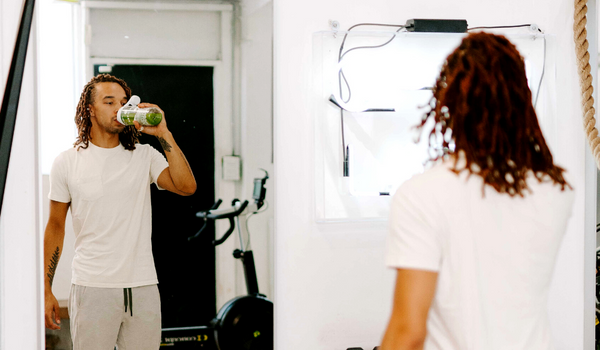
Obviously, the benefits of quitting coffee are numerous. But, that doesn’t mean that the road ahead will be easy. And, whether you’re planning on quitting cold coffee turkey or slowly cutting yourself off, you’ll likely experience some minor withdrawal symptoms (caffeine is a drug after all). So, how can you replace your caffeine habit with a healthy alternative?
We get it, we have nothing against caffeine at all. In fact, we love matcha for its high caffeine potency, and that’s why we think it’s a great alternative to coffee. But, it’s not just us. Matcha is well-known for having a high caffeine content, and thanks to ( Epigallocatechin gallate) EGCG, this caffeine enters your bloodstream gradually, which helps to prevent caffeine crashes and anxiety. So although matcha does have relatively high levels of caffeine, it is also accompanied by essential amino acids and antioxidants that alter the way it interacts with your body, for a much better (and healthier) caffeine experience.


